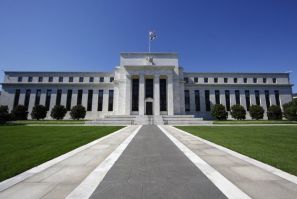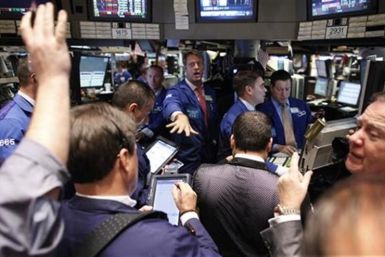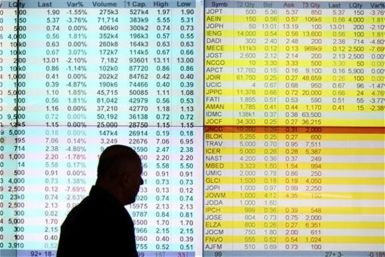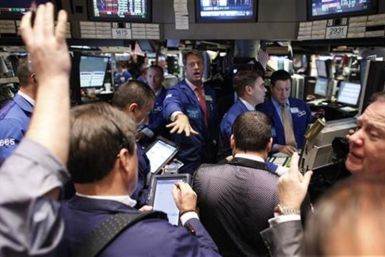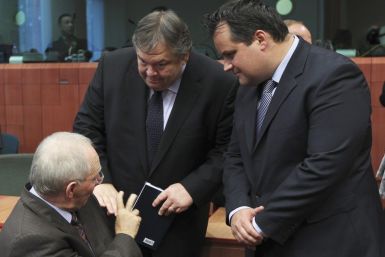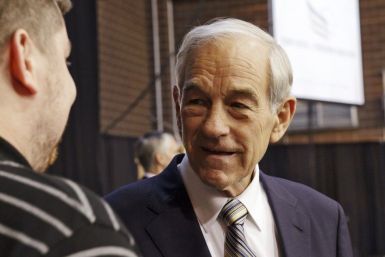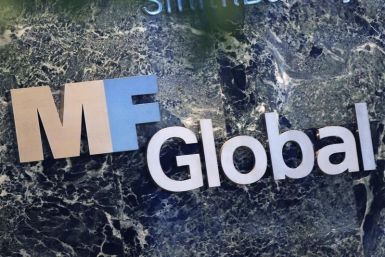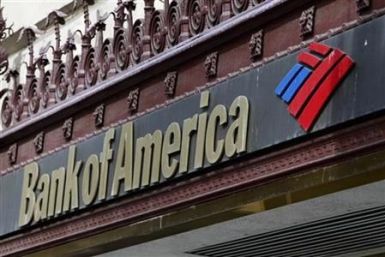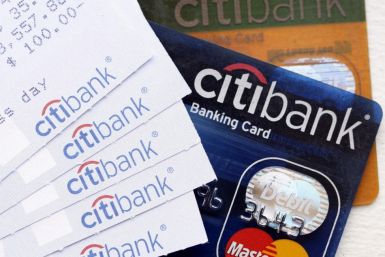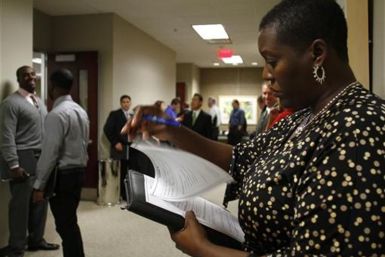Stock index futures jumped on Monday on optimism over the latest round of proposals out of Europe designed to corral the growing Eurozone debt crisis.
Stock index futures pointed to a sharply higher open for equities on Wall Street on Monday, with futures for the S&P 500, the Dow Jones and the Nasdaq 100 rising 2.2 to 2.6 percent.
Stock index futures pointed to a sharply higher open for equities on Wall Street on Monday, with futures for the S&P 500, the Dow Jones and the Nasdaq 100 rising 2.2 to 2.6 percent.
The global economic recovery is running out of steam, leaving the euro zone stuck in a mild recession and the United States at risk of following suit, the OECD said on Monday, sharply cutting its forecasts.
Belgium and Hungary were downgraded late in the week, fueling more fire to the already credit-sensitive region.
A disastrous German bond sale on Wednesday sparked fears that Europe's debt crisis was even beginning to threaten Berlin, with the leaders of the euro zone's two strongest economies still firmly at odds over a longer-term structural solution.
Stock index futures were lower on Wednesday as worries about the euro zone crisis and weak data from China weighed on investor sentiment, putting the S&P 500 on track for a sixth day of losses.
The Federal Reserve plans to stress test six large U.S. banks against a hypothetical market shock, including a deterioration of the European debt crisis, as part of an annual review of bank health.
Stock index futures were lower on Wednesday as worries over Europe once again weighed on investor sentiment, putting the S&P 500 on track for a sixth day of losses.
Ron Paul, R-Texas, a libertarian congressman, has gained popularity recently among likely Republican voters in Iowa and New Hampshire. Here are his positions on the issues.
Stock index futures pointed to a weaker open for equities on Wall Street on Thursday, with futures for the S&P 500, for the Dow Jones and for the Nasdaq 100 down 0.5 to 0.8 percent.
Former customers of MF Global Holdings Ltd got some good news on Tuesday, as the bankruptcy trustee secured more assets and the CME Group Inc expanded a guarantee to speed the return of frozen funds.
The U.S. Department of Justice said it is reviewing statements and actions by big banks and their trade associations to see if they have violated antitrust laws through coordinated action to raise consumer debit card fees. But experts say an actual investigation is fairly unlikely.
The Federal Reserve appears to be edging closer to providing financial markets with more detail to gauge the likely path of monetary policy as a way to buttress a weak recovery.
The U.S. Federal Reserve held a wide-ranging debate on communications strategy at its most recent meeting, suggesting a shift in the way it frames policy may be its next step to buttress a weak recovery.
The Federal Reserve plans to stress test six large U.S. banks against a hypothetical market shock, including a deterioration of the European debt crisis.
The U.S. Department of Justice has launched a review of comments and actions banks and trade associations made when rolling out new consumer debit card fees, sparking antitrust concerns.
The U.S. economy grew at a slightly slower pace than previously estimated in the third quarter, but weak inventory accumulation amid sturdy consumer spending strengthened views output would pick up in the current quarter.
A top Federal Reserve official said on Monday that given recent improvements in the U.S. economy, any further central bank actions to boost growth should be through clearer communications about policy, rather than expanded bond buying.
A company run by former American International Group Inc Chief Executive Maurice Hank Greenberg sued the U.S. government for $25 billion, calling the 2008 federal takeover of the insurer unconstitutional.
The Federal Reserve could provide more clarity to the public about where policy is likely to go and how it might respond to various conditions, a top Fed official said on Monday.
Since 1980, the wage gap in America has widened in a phenomenon known as “job polarization,” stated economists Jaison R. Abel and Richard Deitz of the New York Federal Reserve in a blog posting.









